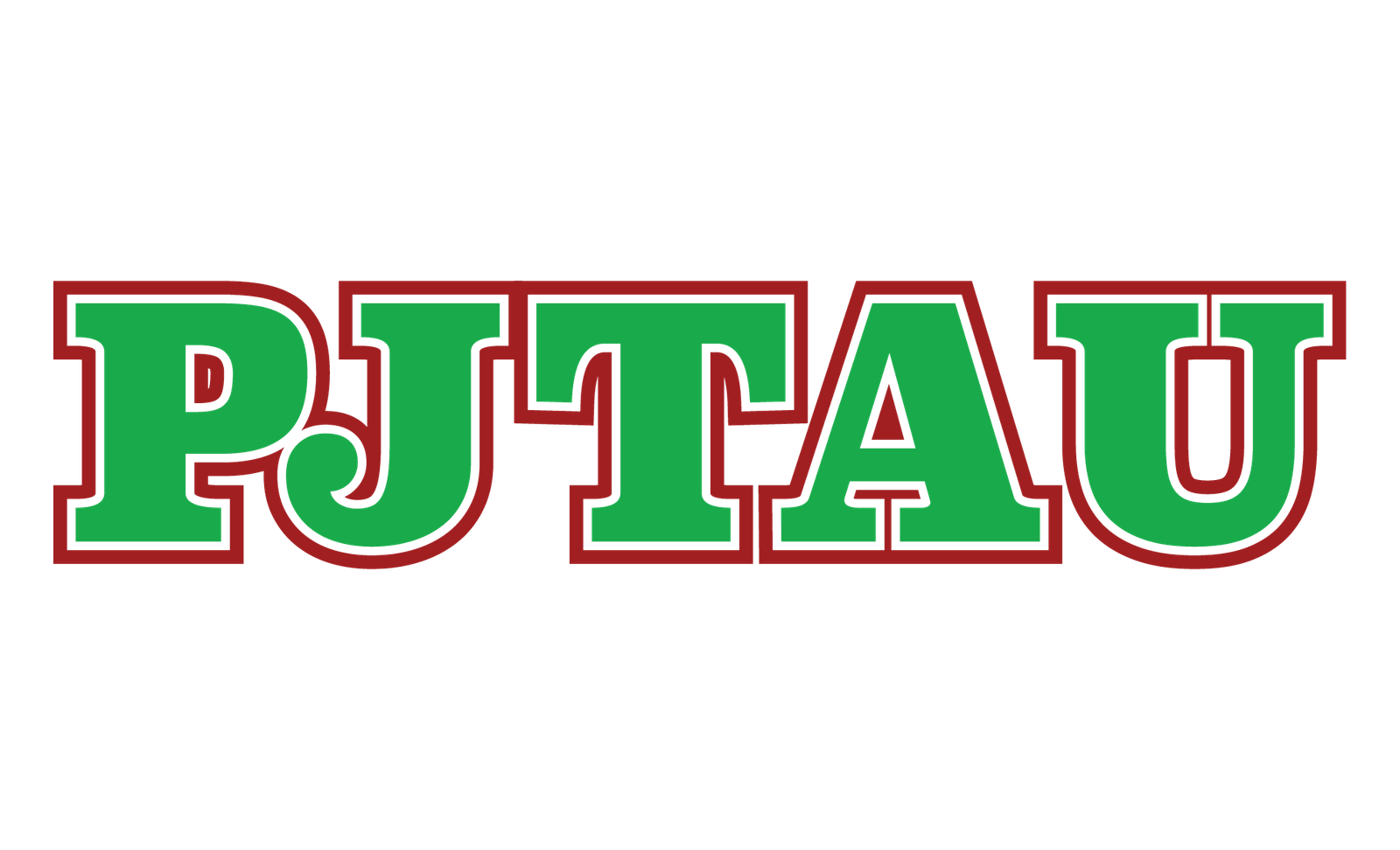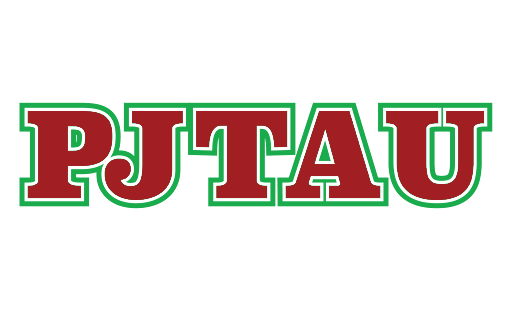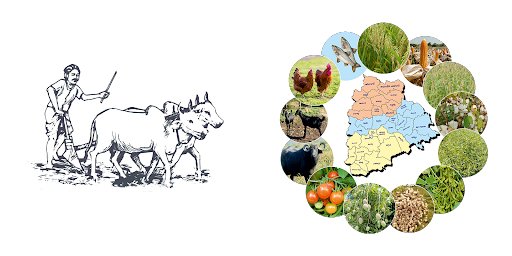Director-C-NARE
Water Management Unit (C-NARE), Rajendranagar
Name of the Research Station : Water Management Unit (C-NARE)
Address (Village/Town, Mandal, District) : Rajendranagar, Hyderabad
Google Location Coordinates : 170 19‘23.592 “ N, 780 24‘58.5648“ E
Agro-Climatic Zone : Southern Telangana Zone
Year of Establishment : 2009 (Formerly Water Technology Centre)
Total Area (in acres) : 10 acres
Mandated Crops : Micro irrigation techniques in Field crops and Vegetable crops
Water management, micro-irrigation, precision farming technologies, sensors Remote sensing and Solar panels
Current Projects
Projects funded by NRSC, Renkube Pvt. Ltd., through Start up AG Hub, Dept. of Telangana, GoI and RKVY are operated since 2021.
Infrastructure Facilities Available
Drip irrigation/sensors, shade net, poly house, water & soil quality analysis lab, RS & GIS Lab
- Major International & National Projects (2007–2014): Led Indo–US AKI & NICHE initiatives, NICRA scaling-up of water productivity, APWSIP adaptive research in NSP command, and RKVY projects on subsurface drip in sugarcane; micro-irrigation & fertigation for field crops; poor-quality drain-water reuse; and Musi wastewater impact studies.
- Aerobic Rice Innovation: Demonstrated aerobic rice systems saving 36 % irrigation water and boosting water productivity by 29.4 % versus conventional transplanted rice, with linear nitrogen response up to 150 kg N ha⁻¹.
- Drip & Fertigation Protocols: Established crop-specific drip schedules (100 % Epan + 100 % RDF for maize/cotton; 1.2 Epan onion; 0.8 Epan pigeonpea; 1.0 Epan potato/tomato; 0.6 Epan castor) and 80–100 % RDF fertigation, achieving significant yield and fertilizer-use efficiency gains across maize, Bt-cotton, tomato, castor, onion, redgram, potato, etc.
- Sprinkler Irrigation Advances: Applied 35 mm at flowering/seed-set in maize, groundnut, tomato, redgram and intercropping systems, raising yields by 28–40 % over rainfed controls.
- APWSIP Nodal Demonstrations (since 2011): As the nodal centre, showcased water-saving practices for maize, cotton, chillies and groundnut across five districts in the Nagarjuna Sagar command.
- Quantified Drip Benefits in Field Crops: Recorded 220–417 mm seasonal water use in drip-irrigated maize and 184–357 mm in sunflower, both with significant yield increases at 1.0 Epan scheduling.
- Alternate Wetting & Drying (AWD) in Rice: Introduced AWD (5 cm submergence management) in lowland rice, halving water use while achieving 5.91 t ha⁻¹ yields.
Aerobic Rice Sprinkler Scheduling: Validated sprinkler-based aerobic rice (1.5 Epan to PI, then 2.0 Epan) matching conventional flood irrigation yields.
| Sl. No | Full Name & Designation | Department / Discipline | Areas of Specialization | Mail Id | Photo |
|---|---|---|---|---|---|
| 1 | Dr. K. P. Vani Director, C-NARE |
Agronomy | Nutrient Management, Conservation Agriculture, Water Management and Natural Resource Management | kandivani@yahoo.co.in |  |
| 2 | Dr. K. Suresh Principal Scientist |
Agronomy | Irrigation Management, Nutrient Management and Integrated Farming Systems | suresh@pjtau.edu.in | 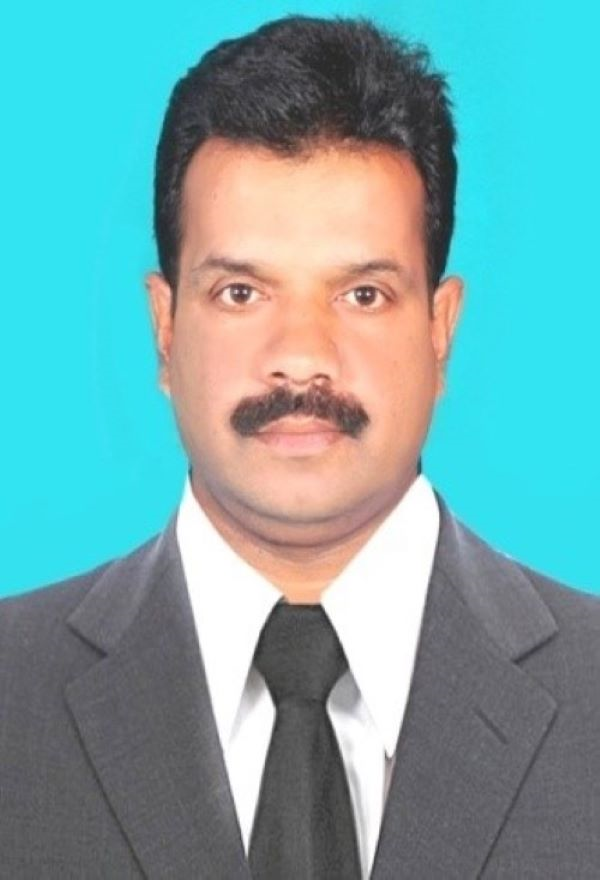 |
| 3 | Manoj Kumar Gaddam Principal Scientist |
Soil and Water Conservation Engineering | Soil and Water Conservation Engineering | mkgaddam53@gmail.com | 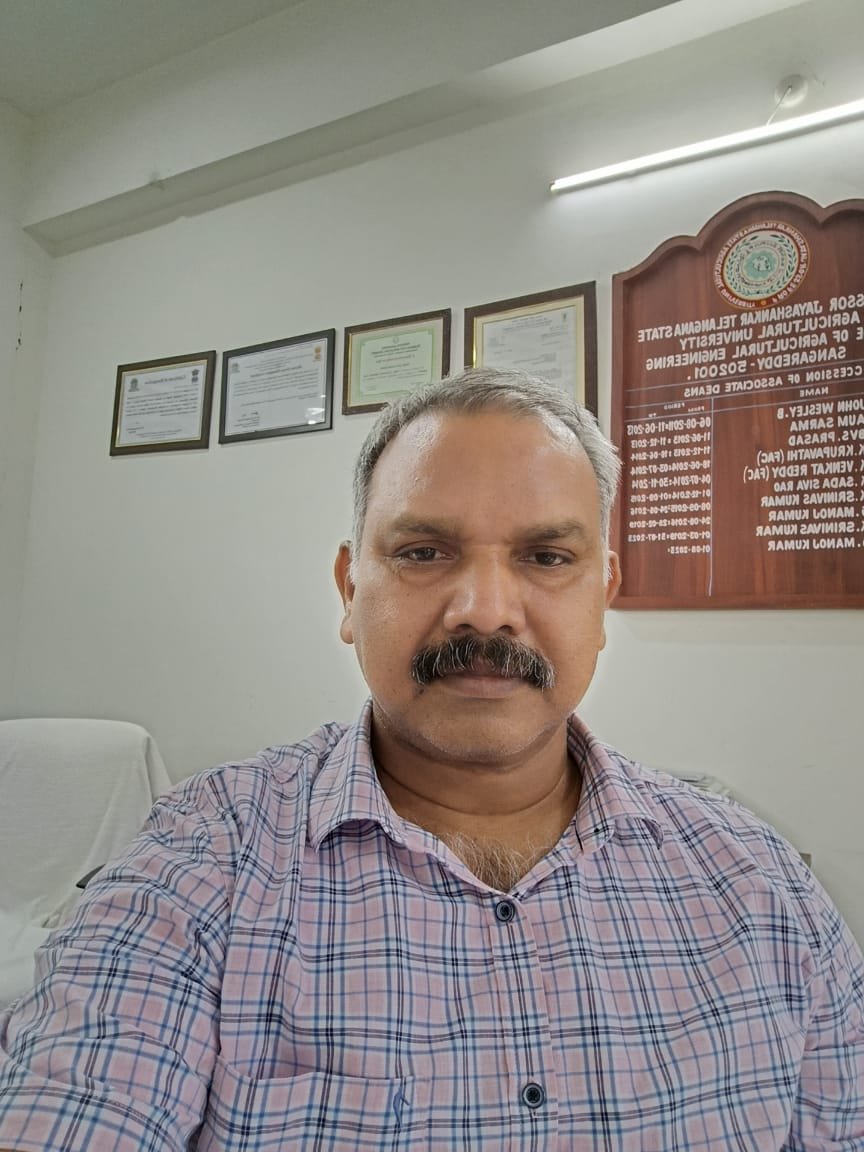 |
| 4 | Dr. M. Vijayalaxmi Senior Scientist |
Horticulture | Floriculture and Ornamental Gardening | vijayahorti9@gmail.com | 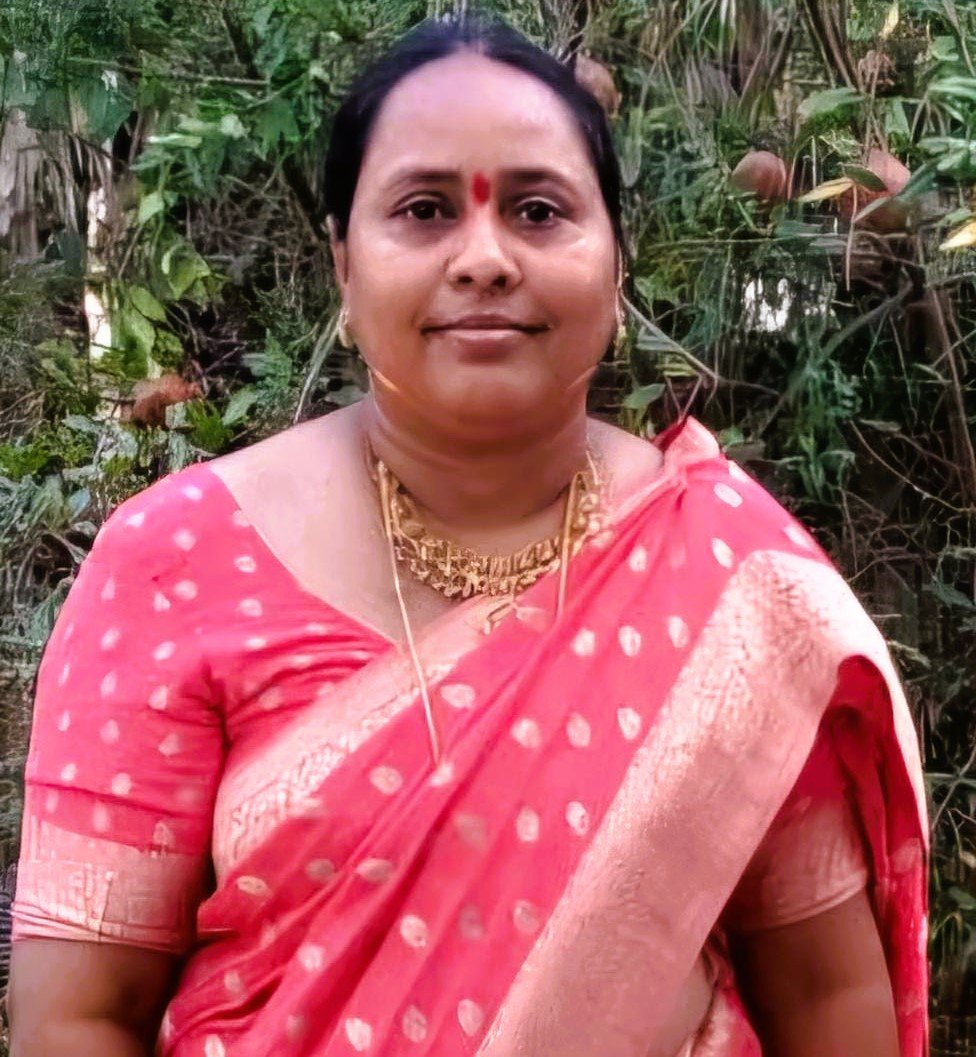 |
| 5 |
Dr. Kasthuri Rajamani |
Soil Science and Agricultural Chemistry |
Soil Fertility and Nutrient Management |
kasthuri.agrico114@gmail.com;
|
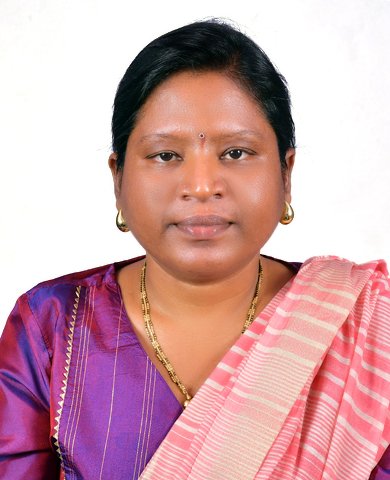 |
Soil Health Unit & Radiotracer Agricultural Chemistry Lab
Name of the Research Station : Soil Health Unit & Radiotracer Agricultural Chemistry Lab
Address (Village/Town, Mandal, District) : Agricultural Research Institute, Rajendranagar, Hyderabad
Google Location Coordinates : Latitude :17.323074o N; Longitude :78.399921o E
Agro-Climatic Zone : Southern Telangana Zone
Year of Establishment :
- AICRP on Soil Test Crop Response:1967
- AICRP on Micro & Secondary Nutrients and Pollutant Elements in Soils and Plants: 1975
- Radiotracer and Agricultural chemistry Lab:1967
Total Area (in acres) : Two acres
- AICRP on Soil Test Crop Response:
- To provide specific recommendations and guidelines for soil fertility management vis-à-vis suitable crop production.
- AICRP on Micro & Secondary Nutrients and Pollutant Elements in Soils and Plants :
- To delineate the micro and secondary nutrient-deficient and toxic areas.
- Reassessment of micro- & secondary nutrients (MSN) deficient/ toxic areas by soil and plant analysis
- To standardize and develop appropriate soil test methods and to establish the critical values for deficiency, adequacy and toxicity of micro and secondary nutrient elements in soils for field, horticultural and plantation crops.
- To study the magnitude of response of different crops to the application of micro and secondary nutrients.
- To evaluate the sources of micro and secondary nutrients, their rate, mode and frequency of crop application.
- To determine the direct, residual and cumulative availability of micro and secondary nutrients to crops in different crop rotations on well-defined soil series or types.
- To study the role of organic and green manures in correcting micro and secondary nutrient deficiencies in crops.
- To screen germplasm of crops for their tolerance to micronutrient stress.
- To study the micronutrient interaction in soils and plants.
- To monitor hazards from heavy metals or trace element pollution/toxicity in soil, plant, animal and human beings.
- Radiotracer and Agricultural Chemistry Lab:
- To conduct research by using radioisotopes in the field of soil fertility and fertilizer use, soil – plant nutrition relationships and pesticide usage.
Mandated Crops:
Rice, Maize, Groundnut, Castor, Cotton, Chilli, Soybean, Sesamum, Vegetable crops
AICRP on Soil Test Crop Response:
- To establish a significant relationship between soil tests and crop response to Fertilizer application on representative soil(s) in different soils of varying
agro-climatic regions so as to provide a basis for fertilizer recommendation
based on soil testing to maximize yield and profit - To derive a basis for making fertilizer recommendations for desired yield target suited to the constraints in fertilizer availability or fertilizer cost or credit facilities to the farmers
- To evaluate various soil test methods for their suitability under field conditions
- To evaluate the extent to which the fertilizer need of crops can be reduced,
in relation to conjunctive use of chemical fertilizers and organic manures - To derive a basis for making fertilizer recommendations for a whole cropping sequence based on initial soil test values
- Soil test crop response correlation studies and development of fertilizer prescription equations for achieving targeted yields
based on soil test values. - Developed fertilizer prescription targeted yield equations for about 32 crops under different Agro-climatic zones of A.P &Telangana by using both inorganic fertilizers and organic manures.
- Soil fertility mapping to the major nutrients for 32 districts of Telangana.
AICRP on Micro & Secondary Nutrients and Pollutant Elements in Soils and Plants :
- Delineation and reassessment of micro-& secondary nutrient status in soils under major cropping systems
- Diagnosis of Deficiency of micro and secondary nutrients in soils and plants:
- Amelioration techniques for improving crop production by the use of micronutrients
- Study on “one health approach” related to micro and secondary nutrients in Soil-Water- Animal Continuum
- Monitoring, risk assessment, and remediation of pollutant elements in the Soil-Plant-human-animal Continuum
- Enhancing the efficiency of native and applied micro and secondary nutrients
- Frontline demonstrations on effective technologies generated by the centers.
Radiotracer and Agricultural Chemistry Lab:
- Active root distribution of different cereal crops, pulse crops, oilseed crops, commercial crops and fruit crops by using 32P soil injection technique.
- Fertilizer use efficiency studies using 15N stable isotope for its better management to increase the use efficiency and crop yields.
- Studies on solubility of phosphatic fertilizers and P availability for different crops and soils using 32P radioisotope.
- Research on time and method of application of phosphatic fertilizers to increase its use efficiency and crops yields by using 32P radioisotope.
- Evaluation of complex and other new fertilizer materials for their solubility and availability of nutrients.
- Screening of crop varieties for photosynthesis efficiency using 14C radio isotope.
- Screening of crop varieties for efficient utilization of soil and applied phosphorus by using 32P radioisotope.
- Nutrition of oilseed crops.
- RKVY Project – 704.93 lakhs –3Yrs
- M/S Indo Climate SensePvt. Ltd. Hyderabad -15.45lakhs -one year
Infrastructure Facilities Available
The soil health unit houses with latest equipment to cater the needs of research scientists, students and farming community with high end equipment like Atomic Absorption Spectrophotometer, MPAES, ICP- OES,CNS Analyseretc;
Radiotracer and Agricultural Chemistry Lab:
- P application can be reduced by 25 to 75 % from current recommended dose with reference to initial soil available P ranging from 62 to 103 kg P2O5 ha-1in rice maize and sunflower crops.
- In Rice- Rice and Rice- Sunflower systems, P fertilizer dose can be reduced by 50% from current recommended dose if the soil available P2O5 is > 100 kg ha-1.
- Root activity of rice in SRI was found higher by 25% as compared to normal transplanted rice at 25 X 25cm spacing and 64% higher at 20 X 20 cm spacing with 32P radioisotope studies.
- In marginal and S deficient soils, S application (35S radioisotope) in two equal splits at sowing and 30 DAS found to improve its use efficiency and crop yield in Soybean, Chickpea and garlic.
- Zn fortification (65Zn radioisotope) in rice variety MTU 1010 is better as compared to the variety Erramallelu.
- The per cent nitrogen derived from the added green manure (15N tagged) ranged from 2.04 to 6.40 under different rates of green manure application in paprika.
AWARDS
- Best Faculty Award, PJTSAU-2021-22 (Dr. A. Madhavi).
- Sri MandavaVenkataRamaiah Best Teacher Award-2023 (Dr. K. Pavan Chandra Reddy)
- Distinguished Scientist Award – 2022. (Dr. K. Pavan Chandra Reddy). (Awarded at 5th National Conference on DISHA-2022 held at KNIPSS, Sultanpur, UP)
| Sl. No | Full Name & Designation | Department / Discipline | Areas of Specialization | Mail Id | Photo |
|---|---|---|---|---|---|
| 1 | Adusumilli Madhavi Principal Scientist & Head |
Soil Science and Agricultural Chemistry | Soil Fertility, Radiotracer studies, SSNM | madhavi.adusumilli@gmail.com | 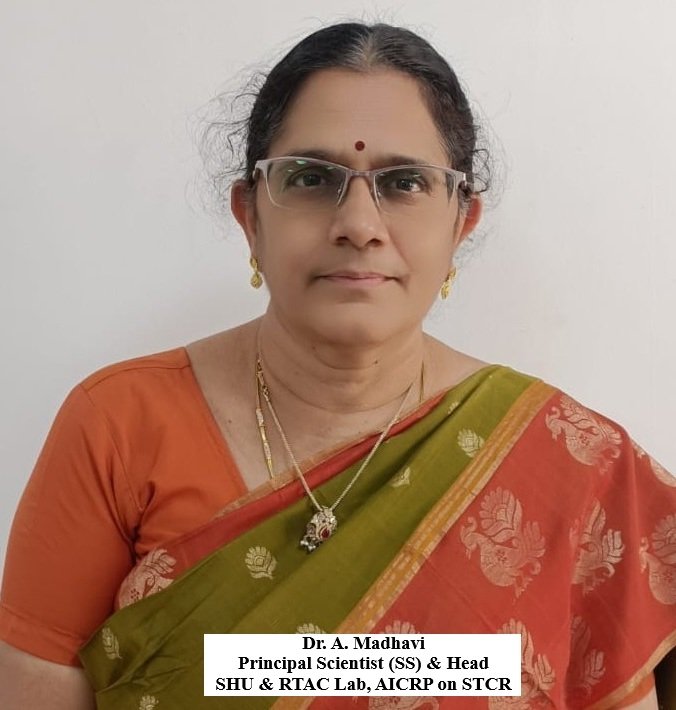 |
| 2 | Dr. Pasupuleti Reddy Priya Scientist |
Agricultural Microbiology & Bioenergy | Agricultural Microbiology | drreddypriya1020@gmail.com |  |
| 3 | Dr. K. Chiranjeevi Scientist |
Agronomy | Crop nutrient management, Integrated farming Systems | medak.ofr@gmail.com | 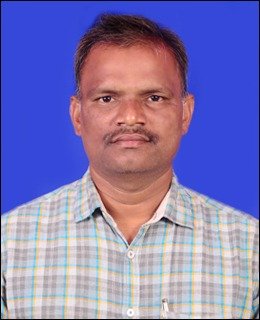 |
| 4 | Dr. Salla Sowjanya | Agricultural Economics | Agricultural Economics | sowjanya.nsui@gmail.com |  |
AICRP on Integrated Farming Systems Unit, Rajendranagar
Name of the Research Station : AICRP on IFS, Rajendranagar
Address (Village/Town, Mandal, District) : Rajendranagar
Google Location Coordinates : Latitude: 17.32299° N, Longitude: 78.41645° E
Agro-Climatic Zone : Southern Telangana Zone
Year of Establishment : 1969
Total Area (in acres) : Wet area : 0.5 acre; ID area : 3.75 acre, Total area : 4.25 acre
Mandate / Objectives:
- Characterization of existing farming systems to know the productivity, viability and constraints.
- Establishment, developing and validation of location-specific on-station integrated farming systems models.
- Developing, testing, verification and refinement of system based farm production technologies.
- Identification and evaluation of alternative cropping systems for improving productivity and profitability.
Key Research Themes / Focus Areas
- Cropping systems
- Crop Diversification
- Integrated farming Systems
- Organic / Natural farming
Current Projects
- Funding Agency : IIFSR, Modipuram and PJTAU
- Identification of cropping systems module for different farming systems.
- Sustainable resource management for climate smart IFS.
- Carbon crediting and GHG emission in IFS models
- Pilot project on Crop diversification in Khammam district (Khammam district).
| SI.No | Item |
|---|---|
| 1 | Cows (2 cows + 1 calf), Sheep- 35 |
| 2 | Sheep sheds 2 No. |
| 3 | Micro irrigation system |
| 4 | Dairy shed, old sheep shed and poultry shed |
| 5 | Vegetable pandal |
| 6 | Azolla sheds |
| 7 | 2 cu.m biogas plant |
| 8 | Vermi compost unit |
| 9 | AICRP-IFS labs |
| 10 | Spectrophotometer |
| 11 | Galaxy TAB S7 |
| 12 | Lenovo Think Book |
Technologies developed
- Resource efficient cropping systems for Southern Telangana region of Telangana.
- Diversified cropping systems for rice-rice in Southern Telangana region of Telangana.
- Integrated Nutrient Supply System for rice-rice cropping system
- Bio-intensive complementary cropping systems for Southern Telangana Zone
- Crop + Horticulture + Livestock Integrated Farming Systems model for ID situations of Southern Telangana
- Diversified and remunerative cropping systems for designing crop plan in Integrated farming Systems
- Climate smart IFS model for Irrigated Dry (ID) areas of Telangana
Extension Activities / Outreach Programs
- Training programmes – 183,
- TV/Radio programmes – 69
| Sl. No | Full Name & Designation | Department / Discipline | Areas of Specialization | Mail Id | Photo |
|---|---|---|---|---|---|
| 1 | Dr. Mohammad Latheef Pasha Principal Scientist & Head |
Agronomy | Integrated farming systems, cropping systems, Precision irrigation water management | lateefpasha@pjtau.edu.in |  |
| 2 | Dr. K. Sridhar Scientist |
Agronomy | Nutrient and Water Management | sridhar.agron@gmail.com | |
| 3 | Dr. K. Chiranjeevi Scientist |
Agronomy | Crop nutrient management, Integrated farming Systems | medak.ofr@gmail.com | |
| 4 | Dr. Salla Sowjanya Scientist |
Agricultural Economics | Agricultural Economics | sowjanya.nsui@gmail.com |
Station In-Charge (Name & Designation):Dr. Mohammad Latheef Pasha, Principal Scientist & Head, AICRP on Integrated Farming Systems Unit, Rajendranagar
e-Mail : aicrpifs@pjtau.edu.in
Mobile Number :
AICRP on Agroforestry Unit, Rajendranagar
Name of the Research Station : AICRP on Agroforestry
Address (Village/Town, Mandal, District) : Village: Rajendranagar, Mandal : Rajendranagar , District: Ranga Reddy district
Google Location Coordinates : Latitude: 17.3114990° N, Longitude: 78.4203710° E
Agro-Climatic Zone : Southern Telangana Zone (STZ)
Year of Establishment : 01.01.1987
Total Area (in acres) :
Roads and buildings (ha): 1.00
Rainfed:11.15
ID (Bore well): 1.00
Land not brought under Cultivation: 0.60
Total area: 13.75
- Survey of Agroforestry Systems in the Changing Climate Scenario in Telangana State
- Collection, Screening and Selection of Suitable Tree Species for Agroforestry
- Development and Transfer of Sustainable Agroforestry Systems and Technologies
- Enhancing Carbon Sequestration through Agroforestry Systems.
- Development of Biodiversity Park and Preservation of Native Flora and Fauna
- Cooling stand for macro digestion ‘N’ Assembly
- Cylinder Hexagonal base
- Soil core sampler
- Water still (Manesty type)
- Water softener
- pH meter with electrode
- Mettler electronic top pan balance
- Mini rotary shaker
- Laboratory willey mill
- KEL PLUS “N” Automatic Distillation system
- Automatic ‘N’ Digestion system and automatic scrubber system (KEL PLUS
- Soil Hydrometer
- Oil expellers unit
- Power saw (sthil HT 75 pole pruner)
- Mango based Agri-horti System in Marginal Lands.
- Integrated nutrient management (INM) of different fodder crops in custard apple based horti-pastoral system.
- Response of different fodder grasses grown under Melia dubia based silvi-pastoral system.
- Performance of different commercial crops under Melia dubia based Agri – silvi system in marginal lands.
Extension Activities / Outreach Programs:
- Training programme under SCSP: 2 Nos
- Training programme under TSP : 5 Nos
| Sl. No | Full Name & Designation | Department / Discipline | Areas of Specialization | Mail Id | Photo |
|---|---|---|---|---|---|
| 1 | Dr. A. V. Ramanjaneyulu Principal Scientist (Agro.) |
Agronomy |
Agronomy |
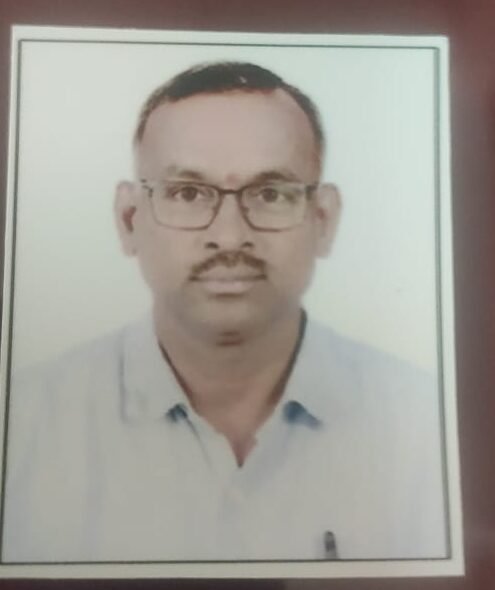 |
|
| 2 | Dr. Vijaya Lakshmi Dasari Scientist (Soil Science) |
Soil Science and Agricultural Chemistry | Soil fertility and nutrient management | vijjiprabhu888@gmail.com | 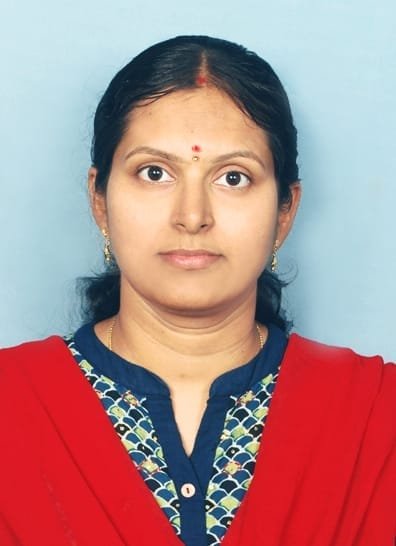 |
| 3 | Dr. M. Ramesh Scientist (Plant Breeding) |
Genetics & Plant Breeding | Plant Breeding | rameshmalothu1@gmail.com | 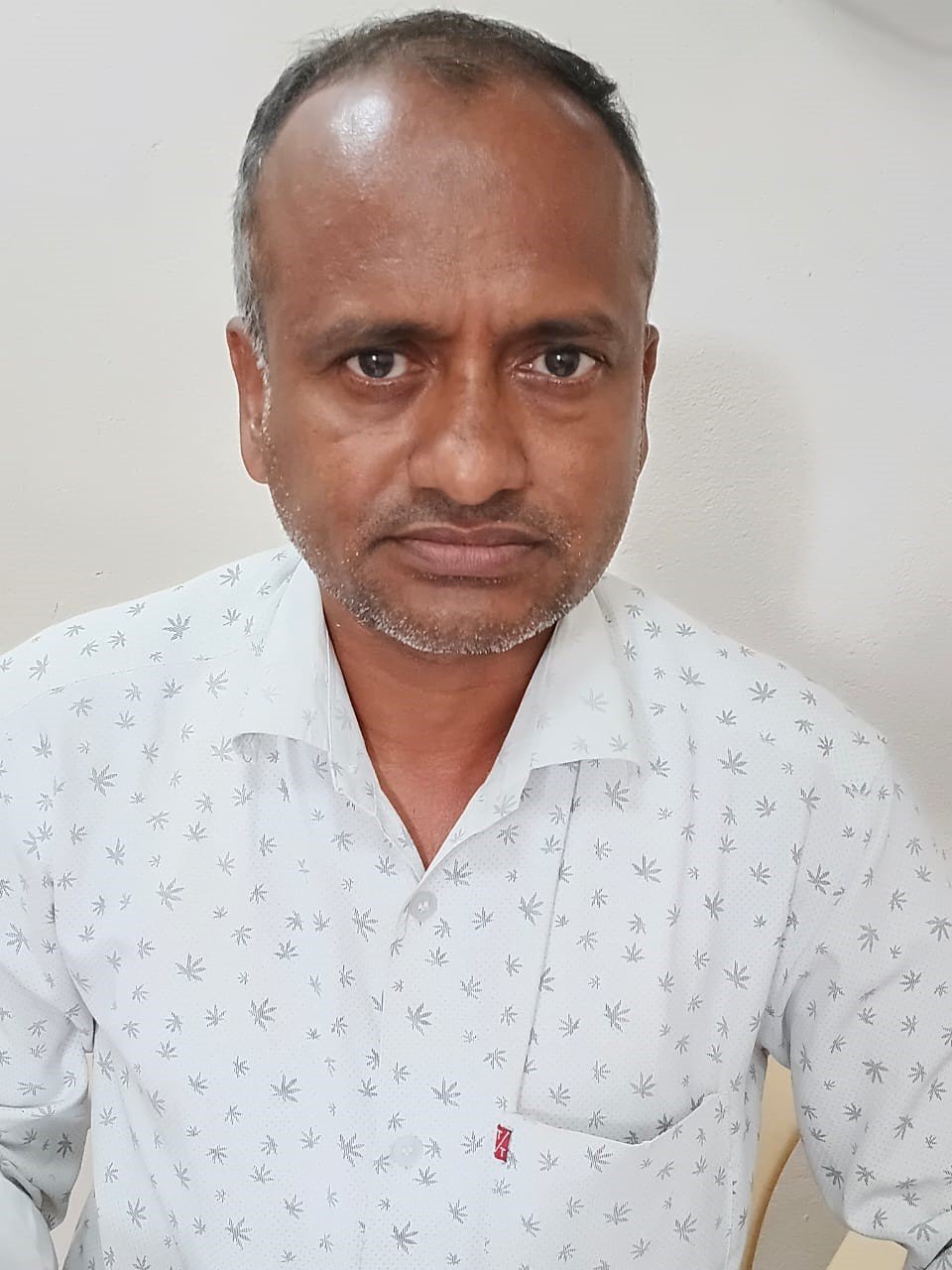 |
AICRP on Micronutrients
| Sl. No | Full Name & Designation | Department / Discipline | Areas of Specialization | Mail Id | Photo |
|---|---|---|---|---|---|
| 1 | Dr. S. Sridevi (Principal Scientist) | Soil Science | Soil Fertility, Crop Residue Management, Plant Nutrition, Organic Farming and Farming Systems | sridevikarlapudi@gmail.com |

|
| 2 | Dr. T. Sukruth Kumar (Principal Scientist) | Soil Science | Soil Fertility, Soil Pollution | sukruthdr.ag@gmail.com |
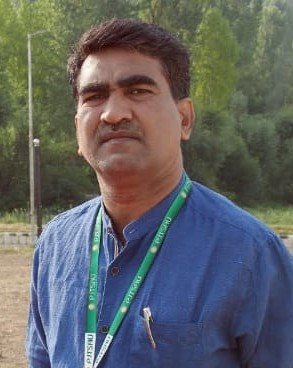
|
| 3 | Dr. M. Shankaraiah | Soil Science | Soil Fertility, Chemistry, Secondary and Micronutrients, Pollutant Heavy Metals, SSNM, RS & GIS and Nutrient Interactions | shankar.mekals71@gmail.com |
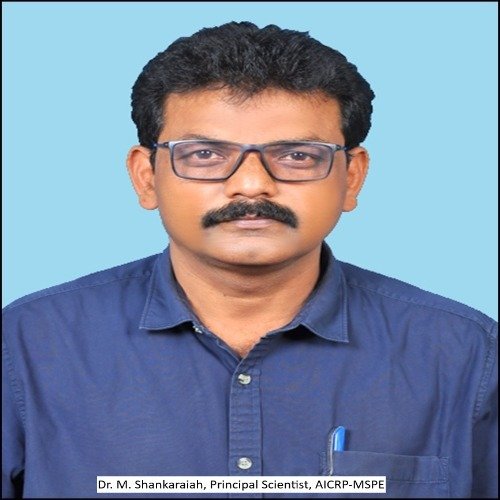
|
